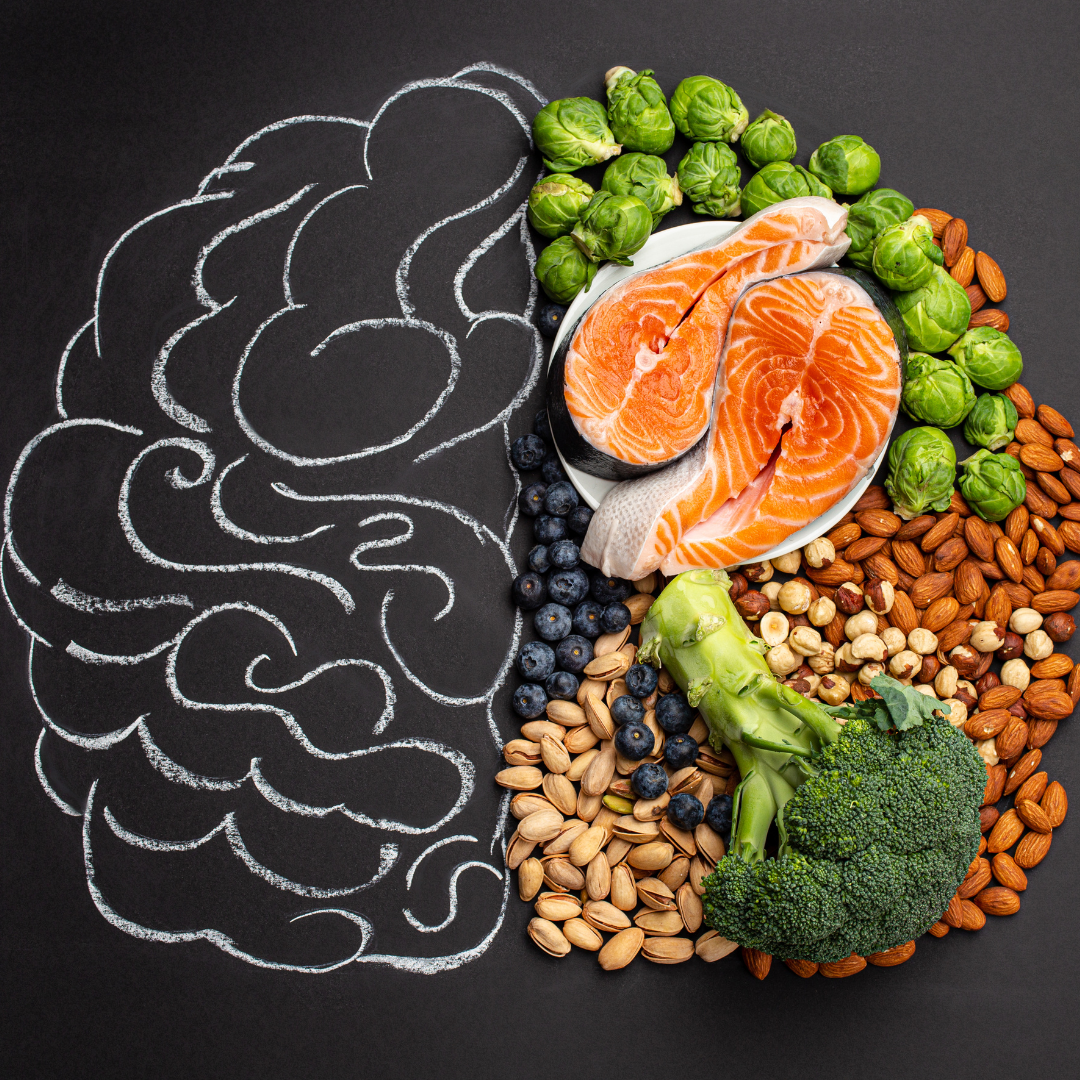
We live in a time where when most people think about their diets or daily lifestyle habits, they mostly think about what they can eat or do to lose weight. Yes, shedding pounds can be important for many reasons, however it’s not the only consideration when it comes to optimizing your health. We often forget about the brain! It’s important to remember that brain health equals mind health. Taking care of your brain is just as important as caring for any oth
Most conversations around diet and lifestyle today tend to revolve around one thing: weight loss. While reaching a healthy weight is important, it shouldn’t be the only goal when optimizing your health. One area that’s often overlooked? Brain health.
Your brain controls everything — from your mood and memory to focus and motivation. In other words, brain health = mind health. Supporting your brain is just as essential as taking care of your heart, liver, or gut. And as someone who works primarily in brain-focused nutrition, I’m here to tell you why it matters — and how the foods you eat can make a world of difference.
Why Brain Health Matters
For a long time, the brain was treated as if it were separate from the rest of the body. Fortunately, this is changing. More holistic practitioners — like nutritionists and naturopathic doctors — are acknowledging what current science is making clear: your brain and gut are deeply connected.
This link is known as the gut-brain axis — a communication network where nutrients and signals travel from the gut to the brain. What you eat directly affects how your brain functions, influencing things like:
-
Memory
-
Focus
-
Mood
-
Cognitive performance
-
Risk of neurological disease
On the flip side, a diet high in processed or inflammatory foods can lead to neuroinflammation, which is linked to a host of mental and cognitive disorders. Your food choices are either feeding your brain or fogging it up.
How Your Diet Affects Your Brain
The next time you eat, tune in to how you feel afterward — especially above the neck.
-
Are your thoughts slower?
-
Do you find it harder to focus?
-
If you have ADHD or anxiety, do your symptoms flare up?
-
Are you suddenly exhausted or foggy?
These reactions aren’t just in your head — they’re signals from your body. Becoming aware of how different foods affect your mental clarity is the first step toward choosing foods that support better brain function.
Diets high in processed foods have been linked to:
-
Alzheimer’s disease
-
Vascular dementia
-
ADHD
-
Depression
-
Mild Cognitive Impairment (MCI)
-
Anxiety disorders
Rather than diving deep into the science behind these links, let’s keep it simple. Below is a list of foods that are incredibly nourishing for the brain — adding them to your daily routine can help sharpen your focus, stabilize your mood, and protect against cognitive decline.
Top 13 Brain-Boosting Foods
-
Eggs
Rich in choline and B vitamins (B6 & B12), which are essential for memory and brain development. -
Green Tea
Contains caffeine and L-theanine to enhance brain function, focus, and calm. (Just don’t overdo the caffeine.) -
Turmeric
Loaded with curcumin — a powerful anti-inflammatory and antioxidant compound that supports brain health. -
Avocado
Packed with healthy monounsaturated fats that improve blood flow and overall brain function. -
Chia Seeds
A plant-based source of omega-3s, fiber, and antioxidants — all great for the brain. -
Greek Yogurt
High in protein and probiotics, supporting gut health (and in turn, brain health). -
Pumpkin Seeds
Contain magnesium, zinc, iron, and copper — key minerals for brain signaling and function. -
Fatty Fish
Salmon, trout, and sardines are loaded with omega-3s that support brain structure and cognitive performance. -
Blueberries
Rich in antioxidants that protect the brain from oxidative stress and inflammation. -
Nuts
Especially walnuts and almonds — offer healthy fats and vitamin E, which may reduce cognitive decline. -
Grass-Fed Beef
A high-quality source of omega-3s and vitamin B12, essential for energy and brain support. -
Blackberries
Like blueberries, they’re packed with brain-protective antioxidants. -
Sulfur-Rich Vegetables
Think: Brussels sprouts, broccoli, cauliflower, garlic, onions, asparagus. Sulfur aids detoxification and neurotransmitter synthesis, both essential for brain health.
Choose Quality Ingredients for Better Brain Health
Whenever possible, choose organic, whole food ingredients to reduce exposure to pesticides and herbicides. These chemicals have been linked to cellular damage and hormone disruption — both of which can negatively impact brain health.
If organic isn’t always accessible due to budget, here’s a simple rule:
-
Buy organic for thin-skinned produce (like berries, leafy greens).
-
You can buy conventional for thick-skinned fruits (like bananas or oranges).
-
Soak conventional produce in warm water with 1 tsp of baking soda for 10 minutes to help remove surface chemicals.
Final Thoughts
Your brain is your most powerful asset. Supporting it doesn’t require expensive pills or fancy tech — it starts with real food, daily movement, and quality sleep. Small changes in your diet can lead to big shifts in your mental clarity, mood, and long-term cognitive health.
Eat with your brain in mind — your future self will thank you.
